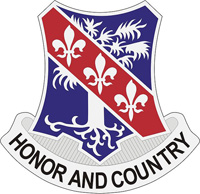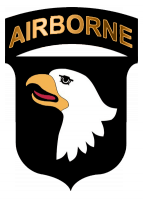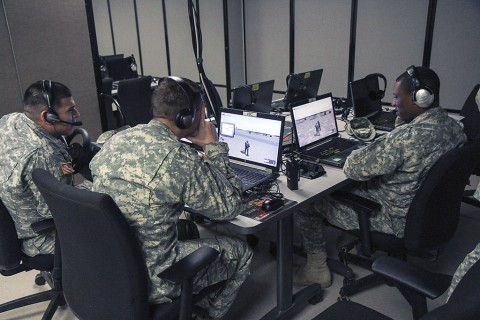Written by Sgt. Samantha Parks
1st Brigade Combat Team, 101st Airborne Division (AA) Public Affairs


Fort Campbell, KY – The room had six Soldiers sitting at tables with headsets on, moving their character across a computer screen, participating in what appeared to be a video game.
“The Virtual Battlespace System is pretty much a war-training video game, but the difference is we have a white cell that is operating behind the scenes, putting injects into the game and conducting actual face-to-face key leader engagements to simulate and add more dynamics to the game,” said 2nd Lt. Katherine Brennan, assistant S-2 with 1st Squadron, 32nd Cavalry Regiment, 1st Brigade Combat Team, 101st Airborne Division (Air Assault).

The Soldiers participating in the training did not have a background in intelligence and that is what made the training so significant, said Brennan.
“A lot of valuable intelligence is lost at the company level, so this training teaches and helps 11 Bravos and 19 Alphas to refine their intelligence skills to pick up things on patrols and report it higher,” she explained.
To make the virtual training as realistic as possible, two intelligence Soldiers sat with a civilian team leader to act as role players in the system and conduct key leader engagements in person.
“We establish roles based on cultural aspects of the area the Soldiers are training in to give them the most realistic scenario,” said Scott Rosenburger, VBS3 virtual training facility team leader.
Brennan added that having Rosenburger leading the white cell allowed for injects that the Soldiers couldn’t predict.
“The biggest thing here is that this can be a very good tool to use for a rehearsal phase in a crawl, walk training plan,” Rosenburger said. “Back in the day, you had to rely on actual role players to show up for training, or you had no role players and you just ran through battle drills. This way you have a way to actually interact with the Soldiers in the simulation so that they can gather the information they need to. It’s very beneficial for any mission they could possibly execute on the battlefield or in a field training environment.”
Brennan added that this training is important because it helps refine Soldiers intelligence skills.
“We need to keep training and continue to prepare for anything in the future,” Brennan said.
Photo Gallery







